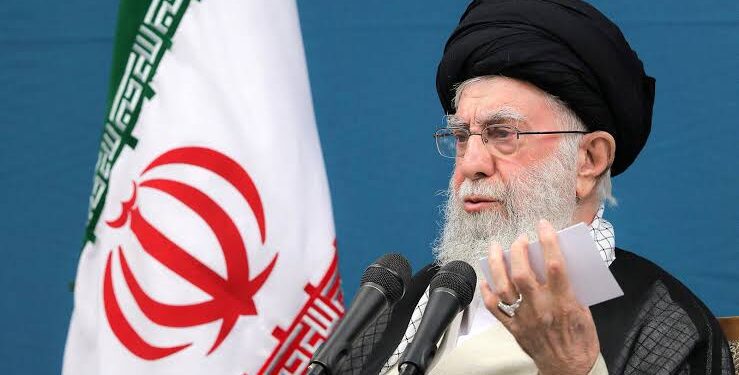Iran’s Supreme Leader Ayatollah Ali Khamenei has publicly accused the United States and Israel of orchestrating the removal of Syria’s former President Bashar al-Assad. Addressing the matter for the first time in a speech delivered in Tehran, Khamenei also blamed a neighboring country, widely speculated to be Turkey, for playing a role in the operation.
“There should be no doubt that what happened in Syria was the result of a joint American-Zionist plot,” Khamenei said. His remarks pointed to what he described as “an unacceptable scenario” where Iran’s key ally, Assad, was overthrown, weakening the country’s influence in Syria and challenging the “axis of resistance.”
Iran Blames US-Israel Alliance and Regional Allies
Khamenei stressed that the operation to depose Assad was part of a larger strategic maneuver by the US and Israel to destabilize Iran’s allies in the region. “The main conspirator, mastermind, and command center are in America and the Zionist regime,” he declared, asserting that Iranian intelligence had foreseen the threat.
While he refrained from explicitly naming the neighboring country, analysts believe his remarks referred to Turkey. Turkey supported opposition forces and contributed to the successful military campaign against Assad’s government from Idlib.
Fallout from the Syrian Collapse
The fall of Assad marks a significant setback for Iran, which has invested between $30 billion to $40 billion in bolstering his regime. The Iranian-led alliance in Syria has faced criticism from within Iran. Reformist politicians and foreign policy analysts have questioned the country’s strategy, debating whether the investment was justified or sustainable.
Javad Zarif, Iran’s Vice President and former foreign minister, admitted to strategic missteps, calling for a shift from a threat-driven foreign policy to one that emphasizes opportunities. Zarif noted that while military victories might yield short-term gains, they often lead to long-term defeat without a solid political resolution.
Regional Implications
Syria’s collapse has triggered a diplomatic reshuffle in the Middle East. Qatar is preparing to reopen its embassy in Damascus, signaling a move to strengthen its influence in the region. Meanwhile, Hamas, traditionally allied with Iran, has welcomed Assad’s removal.
Iran also faces uncertainty regarding its financial investments in Syria. Observers are questioning whether Iran will recover the debts owed by Assad’s regime or maintain influence with the emerging Sunni-dominated Hayat Tahrir al-Sham (HTS) government.
Khamenei’s Defiance
Despite the regional setbacks, Khamenei remains defiant, asserting that the resistance movement will emerge stronger. “The more pressure you exert, the stronger the resistance becomes. The more crimes you commit, the more determined it becomes,” he said, emphasizing Iran’s resilience and its long-term strength.
Khamenei further expressed optimism about the resolve of Syrian youth, vowing they would overcome the challenges posed by foreign interventions and Zionist aggression.
Strategic Reassessment Amid Growing Criticism
The defeat in Syria has opened a rare window for open criticism of Iran’s foreign policy. Reformist factions within the country argue for recalibration, urging the government to prioritize diplomatic solutions over costly military engagements.
The removal of Assad marks a turning point for Iran’s regional strategy and its position within the shifting power dynamics of the Middle East. While Khamenei projects confidence in the face of adversity, the broader implications for Iran’s role in Syria and beyond remain uncertain.
Related Stories:
Netanyahu Warns New Syrian Rulers of ‘Heavy Price’ if They Ever Help Iran
Mohammed al-Bashir Appointed as Caretaker Prime Minister in Transitional Syrian Government
Pakistani PM Orders Immediate Evacuation Of Pakistanis From Syria Amid Escalating Tensions
















